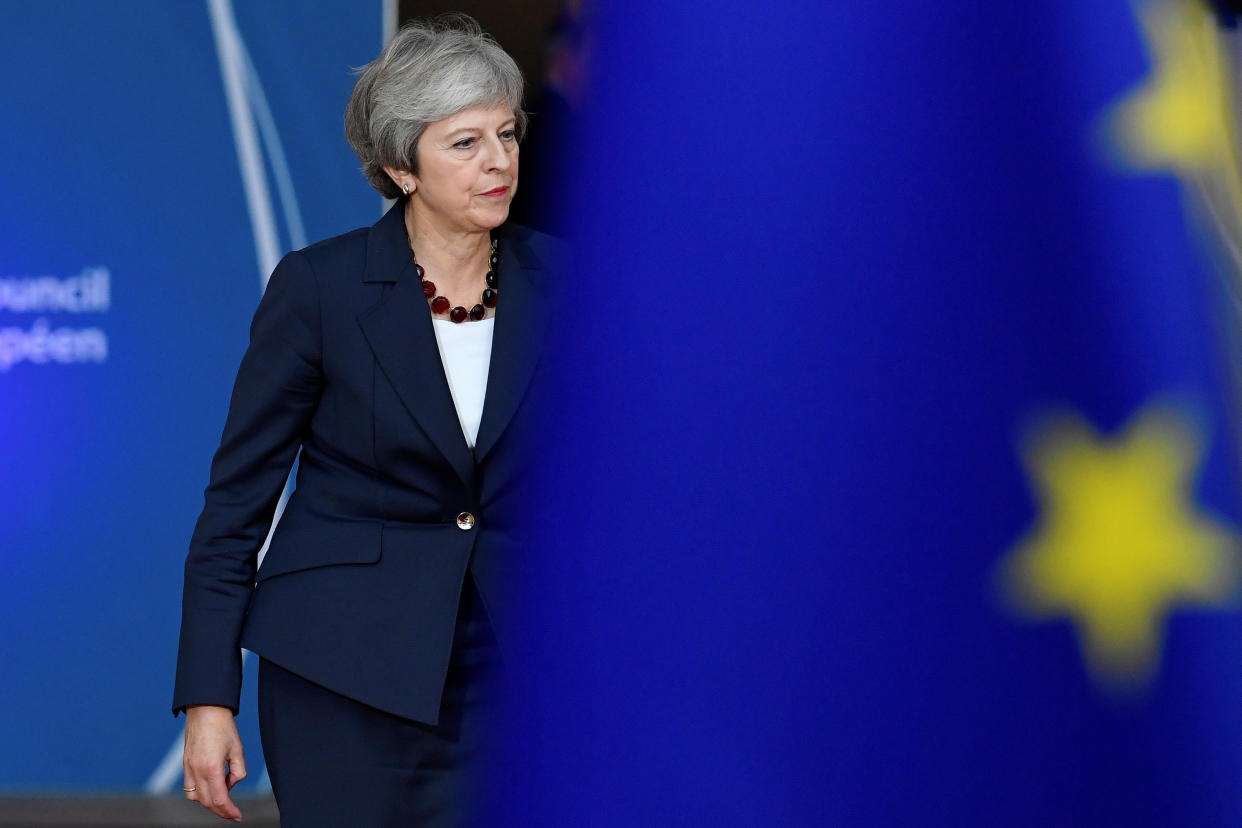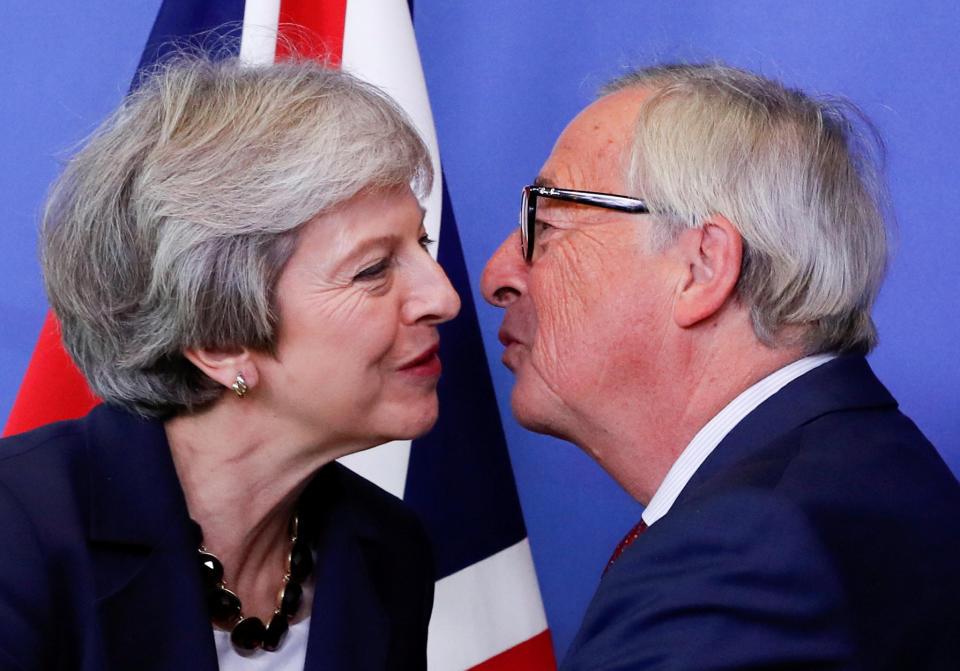Theresa May admits longer Brexit transition is possible

Theresa May has admitted that she is considering EU proposals to extend the Brexit transition period in order to break the impasse over the Irish border ‘backstop’ which has put a deal at risk.
The prime minister said talks are ongoing over an “option to extend the implementation period for a matter of months” in order to give both sides more time to work out a free trade deal that would ensure the ‘backstop’ never needs to be used.
She insisted though that the arrangement, which would see the UK pay to remain in the single market and customs union, may not be necessary at all if there is good progress is talks.
“We are working with the European Union to ensure that, if there is a gap between the end of the implementation and the point at which the future relationship comes in – we don’t expect a gap to exist but if there is – we want to ensure there’s no hard border between Northern Ireland and Ireland,” she told journalists as she arrived at second day of the European Council summit in Brussels.
May and UK officials had refused to say if they were considering the plan on Wednesday night.
But EU sources revealed the prime minister had discussed the possibility during a meeting with EU Council president Donald Tusk and European parliament president Antonio Tajani.
“She said that the UK would be ready to consider the extension of the transition period,” a senior EU source said after the meeting.
Tajani said: “Both sides mentioned the idea of an extension of the transition period of one possibility which is on the take and would have to be looked into.”
In answer to a question from Yahoo UK, he described May as “not against but more or less neutral” to the idea.
The development sparked calls from one backbench Conservative MP for her to step aside in favour of former Brexit secretary David Davis.
If Theresa May is asking for a longer transition period, she is stalling. It’s time to stand aside and let someone who can negotiate get on with it and deliver. I fully support DD as an interim leader. I’ve done my bit. It’s time for my colleagues to do theirs. #Brexit
— Nadine Dorries (@NadineDorries) October 17, 2018
The transition period is currently due to last until December 2020 but there are fears that wouldn’t leave enough time to negotiate a free trade deal.
That increases the likelihood that the ‘backstop’ was implemented in order to ensure that there is no hard border in Ireland during gap between the transition ending and new customs arrangements coming into force.
EU Brexit negotiator Michel Barnier has now offered to extend the transition until the end of 2021 in order to give both sides the time to conclude a trade deal which would render the ‘backstop’ academic.
There will still need to be agreement on a ‘backstop’ in order to complete a Brexit deal, even if the chances of being implemented are reduced by Barnier’s proposals for a longer transition.
“There’s merit to discussing the idea of a longer transition but that can’t be an alternative to a backstop in Ireland. It would have to be as well as,” Irish prime minister Leo Varadkar said as he arrived at the summit.
“But if it did help to reassure people that the backstop would never be activated then that would be a positive thing.”
May did not propose any new ideas on how to push through a deal at the summit – despite Tusk having called on her to bring forward “creative new proposals” on Tuesday.
“There’s a readiness to reach an agreement, but I did not perceive anything substantially new in terms of content as I listened to Mrs May,” said Tajani after his meeting with the prime minister.
May also held private meetings with French president Emmanuel Macron, Irish prime minister Leo Varadkar and European Commission president Jean-Claude Juncker.

She then gave a 15 minute speech to all 27 other EU heads of government.
“We’ve shown we can do difficult deals together constructively,” she was expected to say. “I remain confident for a good outcome and the last stage requires trust and leadership on both sides.”
After listening to May, leaders heard an update on talks from Barnier over a working dinner and decided that not enough progress has been made to warrant a special November Brexit summit.
They left open the possibility that a meeting could be convened at short notice if a breakthrough takes place.
But earlier Barnier suggested November was too soon, saying he needed “much more time” to conclude a deal.
Lithuanian president Dalia Grybauskaite made light of the lack of detail they had to chew at dinner.
#Brexit dinner: negotiations not on the menu. Expecting full English breakfast at next meeting #EUCO
— Dalia Grybauskaitė (@Grybauskaite_LT) October 17, 2018
Luxembourg prime minister Xavier Bettel had earlier expressed his scepticism a deal would be ready by November, saying: “I’m able to come as often as we need to find a solution but I’m not here to just to come and have a cup of coffee and some shortbread.”
European leaders publicly struck an upbeat tone about progress in negotiations in a bid to avoid a repeat of the public bust-up at the Salzburg summit in March.
Dutch prime minister Mark Rutte, who said: “I’m cautiously optimistic that over the coming weeks Michel Barnier and the negotiating team in the UK will come to final conclusions.”
But privately EU officials said her speech had left leaders frustrated by the lack of new content.
Leaving the summit on Wednesday night, Austrian chancellor Sebastian Kurz admitted: “A lot of what she told us was known to us.”

 Yahoo Movies
Yahoo Movies 
